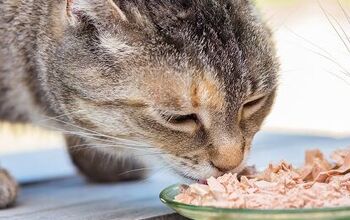The bond we share with our cats is one-of-a-kind. They are our best friends, therapists, furry entertainment, and more. We want to give them the best possible quality of life from the first day they come into our lives, but that desire to “do right” by them only intensifies as they enter their senior years. We want to ensure their comfort, happiness, health, and well-being during this stage of life.This is where adapting our homes comes into play. It’s not just about making things easier; it’s about creating an environment that supports their changing needs and prevents injuries. This post will provide you with practical tips and information for creating a senior cat-friendly home to ensure your best friend enjoys their golden years in comfort.Understanding Normal Senior Cat ChangesWhen we talk about “senior” cats, the definition is a bit of a grey area. The age that a cat crosses into that “senior” label can range from 10 to 12 years old, depending on who you ask.However, it’s important to remember that, like humans, our cats all age at different rates. Some may show signs of premature aging early in life, while others will remain spry and kitten-like well into their late teens. Factors like breed, genetics, lifestyle, and overall health can significantly impact when your cat starts to experience the signs of aging.As cats age, they may experience a variety of physical changes. Arthritis and joint stiffness are common in older cats, leading to decreased mobility, including moving a little slower, fewer “zoomies,” and difficulty jumping or climbing. Muscle mass naturally diminishes, which can impact their strength and agility.Senior cats are also at a higher risk of dental issues like gum disease and tooth loss. Your cat may also experience changes in digestion and elimination, including constipation, increased urination, and difficulty using the litter box (often due to mobility concerns).In addition to the many physical changes our cats experience, they may also go through some behavioral shifts. Senior cats often have lower activity levels, spending less time on playtime and more time napping.Your cat may become more vocal during this stage of their life, including meowing at night or experiencing disorientation, which may signal cognitive decline. Also called “feline dementia,” cognitive decline can lead to confusion, changes in sleep patterns, difficulty navigating spaces they were once familiar with, changes in appetite, and difficulty keeping up with their usual grooming routine. These changes generally don’t happen overnight; they occur gradually. This slow progression can make it easy to overlook, which is why it is so important as loving cat parents to familiarize ourselves with what to look out for and how to best accommodate their needs. Early detection and proactive changes in both your home and care routine will ensure they continue to live the happy, safe, and healthy life you’ve created for them.Tips to Help Adapt Your Home for Your Senior Cat’s ComfortCreating a comfortable environment that supports your senior cat’s needs involves carefully considered and thoughtful changes to various aspects of your home. It’s about anticipating their needs (including future needs, where applicable) and proactively making changes to enhance their life throughout their golden years.Soft and Accessible BeddingAs mentioned, senior cats tend to nap longer and more often. Orthopedic beds are a great option to support their aging joints. Place these beds in warm and easily accessible areas, avoiding high-traffic areas where that all-too-important nap may be interrupted.Consider heated beds or pads, especially during the colder month, to offer a little extra comfort and warmth for their stiff muscles. You can choose from a heated bed that relies on electricity or, as we prefer for our senior girl Pippen, a self-heating pad that can be placed anywhere without worrying about finding an electrical outlet.Temperature RegulationCats are more sensitive to temperature changes in their senior years. To keep your cat comfortable, try to maintain a consistent and comfortable temperature in your home, avoiding extreme heat or cold.Some ways to keep a steady indoor temperature include:Eliminating drats by sealing windows and doorsProviding warm spots and sun patches, such as window perches or cozy blanketsOffering contained sleeping spaces that help trap your cat’s body heatBeing cautious about placing your cat’s items (beds, food dishes, etc.) near heating or AC ventsReducing StressCats thrive on predictability, especially during their senior years. Establish and maintain a consistent daily routine, including mealtimes, bedtime, and play sessions (yes, senior cats still want to play – just shorter, less demanding sessions). Minimize loud noises and sudden changes in their environment, which can cause anxiety.Create a safe space for your cat, such as a quiet room, cat tree, covered bed, or cat condo, where your cat can retreat if they are feeling overwhelmed. If you have other pets, make sure there is at least one safe space where they can be guaranteed to escape on their own.If, despite your best efforts, your cat is still showing signs of stress and anxiety, contact your veterinarian to discuss calming aids, supplements, or medications.Accessible Food and Water StationsIn addition to offering a balanced diet that is uniquely suited for the changing needs of a senior cat, you must also consider the way you are feeding your best friend. Elevate food and water bowls to reduce strain on their joints from bending or reaching down during mealtimes. You can do this by using a raised feeder or placing your cat’s dishes on a small platform.Senior cats experience higher rates of dehydration. Place multiple water dishes or cat fountains throughout your house to encourage proper hydration by making fresh water easily accessible. Use easy-to-clean mats underneath their bowls to prevent spills and messes.
























